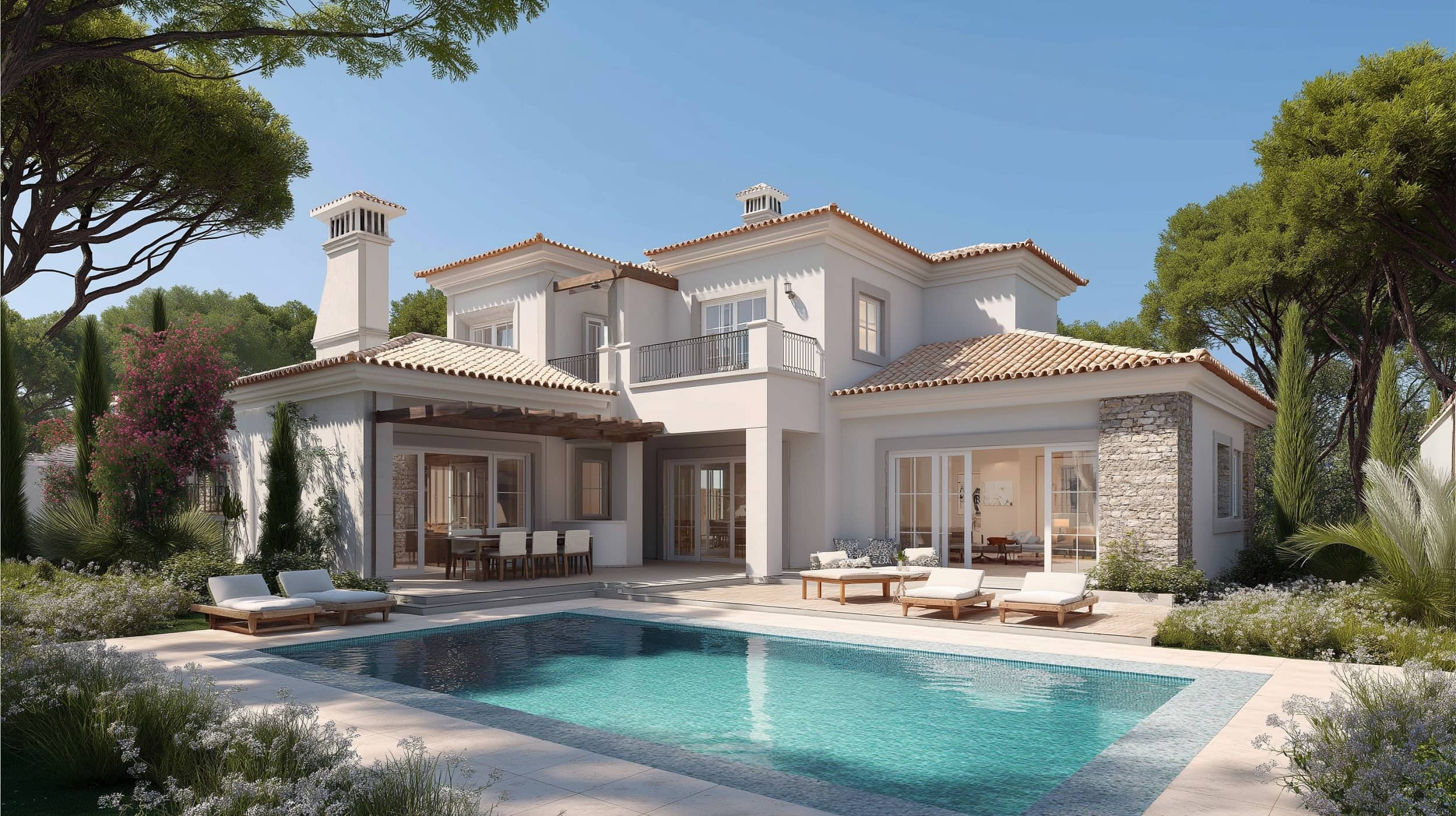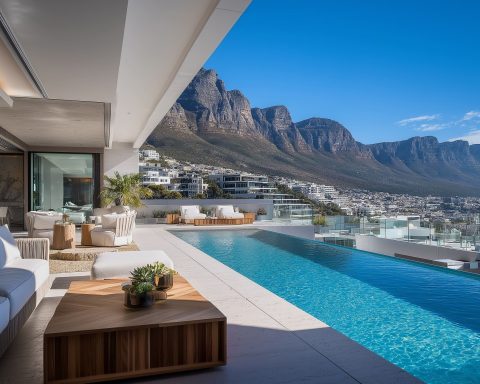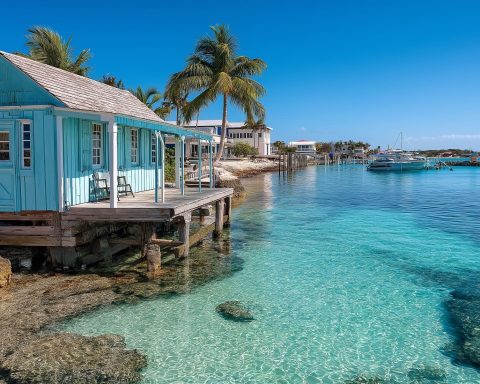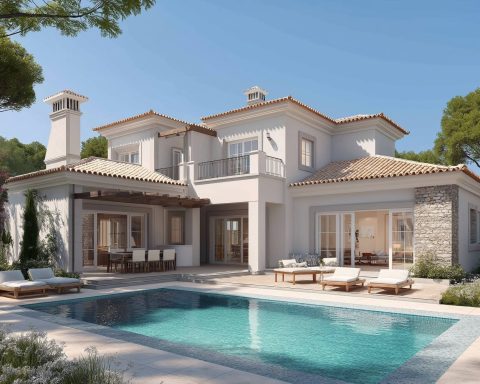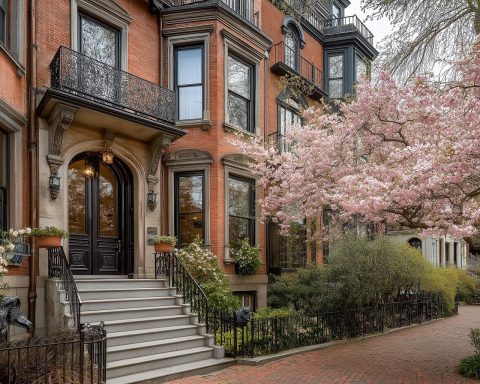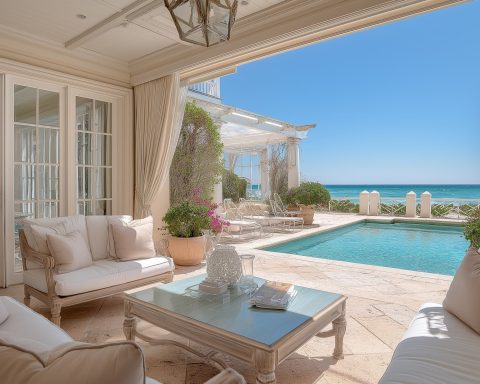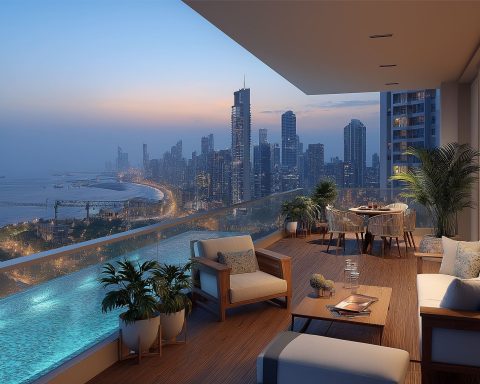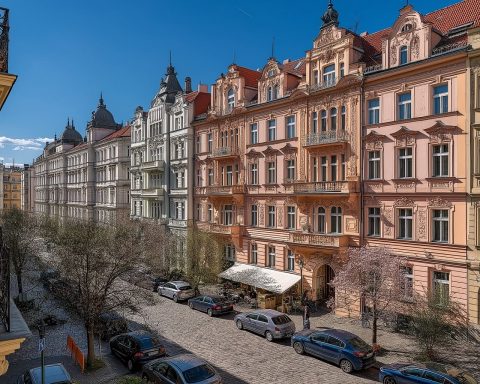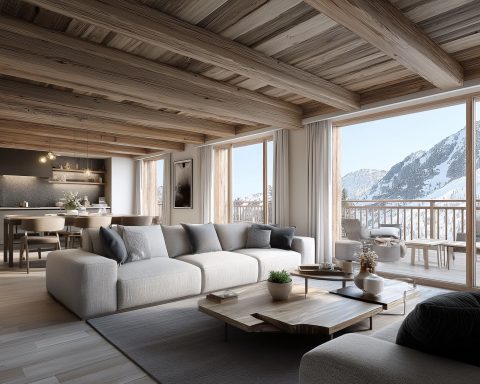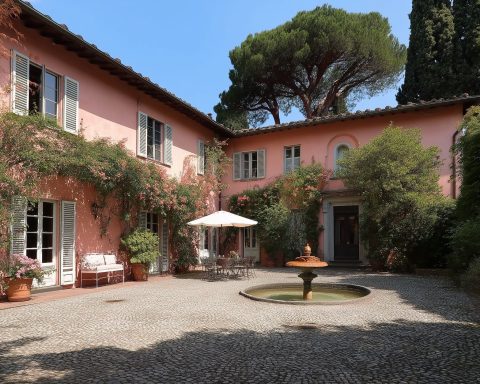Overview of the Algarve Real Estate Market in 2025
The Algarve, Portugal’s southern coastal region, entered 2025 with a robust property market driven by strong demand and limited supply. Residential real estate has seen rapid price growth over the past year, with Algarve house prices rising about 13.8% in 2024 – higher than the national average (+11%) and outpacing Lisbon (+5.5%) and Porto (+7.8%) theportugalnews.com theportugalnews.com. This momentum carried into 2025, making the Algarve one of Portugal’s best-performing regions. Housing supply remains tight – annual new housing stock additions have been minimal (around 11,000 units nationwide per year in 2011–2021) theportugalnews.com theportugalnews.com – contributing to continued price appreciation. Commercial property activity in the Algarve centers on tourism and hospitality. The region’s record €25 billion tourism revenues in 2023 (26.4% of Portugal’s overnight stays) portugalbuyersagent.com have spurred hotel, resort, and retail development. Historic city centers like Faro (the regional capital) and Olhão have undergone regeneration, transforming from transit hubs into “exquisite” destinations with new hotels, renovated buildings, and mixed-use projects essential-business.pt essential-business.pt. Meanwhile, rental property demand is exceptionally high. Rents have been climbing steadily due to a shortage of long-term rentals (many owners opt for lucrative short-term tourist lets), pushing the median asking rent in the Algarve to about €9.41 per m² (monthly) – above the national average of ~€8 portugalhomes.com. In popular towns like Vilamoura and Portimão, long-term rents reach €9.25–€9.40 per m², whereas Faro (city) sees around €7.30 idealista.pt. This imbalance underscores a tight rental market, with affordability challenges for local residents.
Regional Highlights: The Algarve encompasses diverse sub-markets, each with unique trends in 2025:
- Faro (City) – The administrative center has comparatively affordable prices (around €2,685/m² on average) theportugalnews.com and recorded double-digit growth (+11.5% in 2024) theportugalnews.com. Faro’s profile is rising thanks to urban renewal projects and a massive new development: the Vale da Amoreira plan, which will add ~1,641 housing units plus retail, offices, student housing, and healthcare facilities just 1 km from the city center idealista.pt idealista.pt. This €168,000 m² megaproject includes a 10-hectare urban park – set to become Faro’s largest green space – and promises “reasonable” priced homes, aiming to boost supply idealista.pt idealista.pt. Such initiatives are elevating Faro’s attractiveness for both local and international buyers.
- Lagos – A hotspot in Western Algarve, Lagos stands out as one of the priciest and fastest-growing markets. Average sale prices here reached roughly €3,460 per m² theportugalnews.com, second only to the exclusive Loulé/Golden Triangle area. Lagos saw a remarkable +18.6% price surge in 2024 theportugalnews.com, reflecting intense demand for its mix of historic charm, beaches, and modern amenities. Foreign buyers dominate Lagos (over 80% of transactions via some agencies) idealista.pt idealista.pt, seeking villas with sea views or luxury apartments. New developments are also underway – e.g. boutique resorts and condominiums – to cater to high-end demand, including “branded residences” affiliated with hotel brands in nearby areas essential-business.pt essential-business.pt. Despite premium pricing, Lagos’ lifestyle appeal and rental potential (short-term rents ~€9/m² idealista.pt) keep investors interested.
- Albufeira – The region’s tourism capital, known for its resorts and nightlife, has a more mixed market in 2025. Average prices around €2,900/m² are above the Algarve mean theportugalnews.com, but notably Albufeira saw a slight price dip of –0.6% in 2024 theportugalnews.com. This cooling followed several years of sharp rises and may reflect a market reaching price resistance or shifting demand to other areas. Still, Albufeira remains a top rental and second-home market. It hosts ongoing projects like the redevelopment at Herdade dos Salgados (bringing 58 new tourist apartments in late 2024) idealista.pt. Foreigners account for ~72% of local property purchases (especially in the Albufeira-Carvoeiro zone) idealista.pt, predominantly seeking holiday villas with pools or ocean-view apartments. Rental yields stay healthy (~5–6% annually) given the tourist influx, although new short-term rental license restrictions (part of Portugal’s 2023 “Mais Habitação” housing law) put some uncertainty on future Airbnb-style rentals in high-density areas.
- Tavira – In the Eastern Algarve, Tavira combines a quieter charm with rising prestige. It’s now among the “most expensive” Algarve municipalities, with 2024 price growth of +12.8% theportugalnews.com. While exact average prices in Tavira hover in the high €2,000s per m² (asking prices for apartments ~€3,700 and houses ~€3,100 in 2023) portugalbuyersagent.com portugalbuyersagent.com, its market is largely driven by foreign buyers – notably over 90% of investments in Tavira are foreign-sourced idealista.pt. Retirees and second-home seekers from Northern Europe prize Tavira’s authentic Portuguese feel and nearby beaches. New upscale projects are emerging to meet demand: for example, a “refined living” residential development was launched in early 2025 focusing on nature and community, adding modern villas and apartments to Tavira’s inventory idealista.pt. Tavira’s growth is expected to continue as infrastructure improves (e.g. better road/rail links) and as buyers who are priced out of central Algarve look east for value.
- Portimão – As the second-largest city in the Algarve, Portimão offers relatively moderate pricing (around €2,630/m² on average) and slower recent growth (+4.7% in 2024) theportugalnews.com theportugalnews.com. After booming earlier in the decade, Portimão’s price increases have cooled, partly due to ample supply in surrounding areas and buyer preference for nearby Lagos or Carvoeiro for luxury properties. Nonetheless, Portimão remains important: it’s a year-round working city with a major marina, cruise port, and university campus. It attracts a mix of locals and expats (foreign buyers ~50% of the market) idealista.pt. Rental demand is high thanks to students and seasonal workers, giving yields 5.5% in 2023 portugalbuyersagent.com portugalbuyersagent.com. Portimão’s rental rates (€9.25/m²) nearly match more touristy towns idealista.pt. Looking ahead, modest new developments (e.g. revitalization of the riverfront area and new condo projects) aim to rejuvenate the city. While Portimão’s recent price growth lagged other cities, its affordability and amenities could drive a rebound as buyers seek more budget-friendly options in the Algarve.
Overall, 13 of the Algarve’s 16 municipalities saw accelerating price growth in 2024, underscoring broad strength across the region theportugalnews.com theportugalnews.com. Even some traditionally lower-profile markets experienced a surge – for example, Vila Real de Santo António (east end, near Spain) led with +26% in 2024 theportugalnews.com, and inland São Brás de Alportel rose ~17.7% by mid-2025 investropa.com investropa.com. This region-wide expansion in 2024–25 highlights the Algarve’s enduring appeal as both a lifestyle destination and an investment hotspot.
Market Trends and Pricing
Price Levels: The Algarve remains Portugal’s second-priciest region (after the Lisbon metro area) investropa.com. By late 2024, the average transaction price in the Algarve reached about €2,966 per square meter theportugalnews.com. As of mid-2025, averages climbed further – roughly €3,467/m² – reflecting 9% to 14% year-on-year appreciation (depending on data source and month) investropa.com investropa.com. Within the region, there is significant variation (see table below). The Golden Triangle area of Loulé (which includes luxury resorts like Quinta do Lago and Vale do Lobo) is the most expensive, averaging €4,138/m² in 2024 theportugalnews.com. Prime coastal municipalities like Lagos (€3,460) and Tavira (upper €2,000s to low €3,000s) command a premium, while cities like Faro, Albufeira, and Portimão range from about €2,600–€2,900/m² theportugalnews.com. The most affordable areas are typically inland or less touristy – e.g. Monchique’s hills (€2,257/m²) investropa.com or Alcoutim on the Spanish border (€1,780/m²) investropa.com.
Average Sale Price and Growth by Area (2024):
| Area | Avg. Sale Price 2024 (€/m²) | 2024 Price Growth (YoY) |
|---|---|---|
| Algarve (Region) | €2,966 (all property types) theportugalnews.com | +13.8% theportugalnews.com (highest of any region in PT) |
| Loulé (Golden Triangle) | €4,138 theportugalnews.com | +12.6% theportugalnews.com |
| Lagos | €3,460 theportugalnews.com | +18.6% theportugalnews.com (fastest-growing in Algarve) |
| Tavira | ~€3,100–€3,700 (varies by type) portugalbuyersagent.com portugalbuyersagent.com | +12.8% theportugalnews.com |
| Albufeira | €2,909 theportugalnews.com | –0.6% theportugalnews.com (slight decline in 2024) |
| Faro (City) | €2,685 theportugalnews.com | +11.5% theportugalnews.com |
| Portimão | €2,630 theportugalnews.com | +4.7% theportugalnews.com |
| Portugal (for ref.) | ~€1,870 (national median Q4 2024) portugalhomes.com portugalhomes.com | +15.5% (Q4 2024 vs Q4 2023) portugalhomes.com |
Sources: Confidencial Imobiliário SIR data via The Portugal News theportugalnews.com; INE (national stats) portugalhomes.com.
The table illustrates the Algarve’s price heterogeneity. Notably, Albufeira and Portimão cooled in 2024 – Albufeira actually saw a minor price correction (–0.6%) theportugalnews.com after years of growth, and Portimão’s growth fell to mid-single-digits. This contrasts with Lagos and Tavira’s double-digit climbs and the continued strength of Loulé’s high-end market. The divergence suggests that buyers in 2024 gravitated toward emerging or prestige markets (Lagos, Tavira) and that some previously hot markets took a breather. By early 2025, however, price trajectories remained broadly upward. Even the cooler markets are expected to resume growth as demand persists. For instance, as of June 2025 Algarve-wide prices were still rising ~9–14% year-on-year investropa.com investropa.com, indicating that the slight dip in Albufeira may have been temporary or localized.
Property Types: Apartments and villas in the Algarve both command high prices, especially in prime locations. As of mid-2025, the average apartment in the Algarve was around €4,150/m² (up ~6% YoY) while the average villa was about €4,650/m² (up 8–10% YoY) investropa.com. These figures (from a mid-2025 market analysis) are above the overall average, reflecting how sought-after properties – especially new builds or those in luxury resorts – skew higher. Indeed, luxury developments often exceed €5,000 or even €6,000 per m². For example, new-build apartments in Loulé average nearly €5,900/m² asking price, and in Lagos around €4,862/m² portugalbuyersagent.com portugalbuyersagent.com. Villas in Lagos average €5,388/m² asking, reflecting the premium for space and privacy portugalbuyersagent.com portugalbuyersagent.com. On the other hand, certain areas show anomalies: e.g., Castro Marim (eastern Algarve) had a very high average apartment ask (€8,000/m² in 2023) due to a small number of upscale listings, even though houses there averaged only €3,627/m² portugalbuyersagent.com portugalbuyersagent.com. This underscores that local factors (like a single luxury condo project) can sway averages in smaller markets.
Demand Trends: Demand in the Algarve is fueled by both domestic and international buyers, with the latter playing an outsized role. Nationally, foreigners made up roughly 12% of all property sales volume in 2024, a share that has grown ~8% annually since 2019 theportugalnews.com theportugalnews.com. In the Algarve, foreign influence is far greater – over half of all investment in Algarve real estate is foreign idealista.pt. Many sub-markets are majority-foreign: for example, 82% of property transactions in Lagos (by one major agency’s count) involve foreign buyers, 72% in Albufeira-Carvoeiro, and a striking 92% in Tavira idealista.pt idealista.pt. The most active buyer nationalities include the British (historically the largest group), Germans, and Belgians idealista.pt, along with other Northern Europeans (Dutch, Scandinavians) and increasingly Americans investropa.com investropa.com. The Algarve’s climate and lifestyle continue to attract retirees and second-home seekers, but 2023–2025 has also seen a rise in younger “digital nomad” and remote-worker buyers or renters, as well as wealthy investors from the U.S. and elsewhere looking for safe real estate havens essential-business.pt investropa.com. Domestic Portuguese demand, while smaller in volume, has not vanished – notably, in some new developments like Vilamoura’s large master-planned project, 75% of initial buyers were Portuguese, indicating locals do invest when the opportunity and price are right essential-business.pt essential-business.pt.
Growth Compared to Previous Years: The Algarve’s property price growth accelerated from 2023 to 2024, defying a slowing trend seen in Lisbon and Porto. In 2023, Algarve prices were up ~9.2% theportugalnews.com; in 2024 they jumped 13.8% theportugalnews.com. By contrast, Lisbon’s growth decelerated to 5.5% in 2024 (from 6.3% prior year) and Porto’s to 7.8% (from 10.7%) theportugalnews.com. This indicates a relative “catch-up” of the Algarve – already the highest-priced region per square meter outside Lisbon theportugalnews.com theportugalnews.com – as it bucked the cooling seen in other cities. Factors contributing to Algarve’s above-average growth include its renewed popularity post-pandemic (as remote work allowed more people to live in leisure destinations), a surge in Americans and other non-EU buyers diversifying into Portugal bloomberg.com investropa.com, and a persistent supply-demand imbalance (Algarve construction levels remain far below mid-2000s peaks, with few large housing projects until recently). Rental demand also kept upward pressure on investment property prices – many investors chased Algarve homes both for capital appreciation and rental returns, given strong yields. According to Portugal’s National Statistics Institute, gross rental yields in the Algarve averaged about 5.6% in late 2023 investropa.com portugalbuyersagent.com, which is attractive by European standards. In popular towns like Portimão yields are ~5.5%, and in Faro around 4.8% portugalbuyersagent.com portugalbuyersagent.com, bolstered by tourism and expatriate tenancy. Such returns, coupled with low vacancy and the Algarve’s proven long-term price trajectory, have kept both individual and institutional investors in play despite the run-up in values.
Investment Landscape
Key Areas of Interest for Investors: The Algarve offers a mix of high-end resort areas, city markets, and up-and-coming inland zones that appeal to different investor profiles:
- The “Golden Triangle” (Quinta do Lago, Vale do Lobo, Vilamoura in central Algarve’s Loulé municipality) remains a magnet for luxury property investors. It’s characterized by gated golf resorts, multimillion-euro villas, and branded residences. International high-net-worth individuals (HNWI) focus here for exclusivity and amenities – e.g. Quinta do Lago’s ongoing expansions, or Vilamoura World’s €1 billion redevelopment plan that includes a new marina extension, a future five-star hotel, an equestrian center, and even an Ernie Els-designed golf course essential-business.pt essential-business.pt. These projects aim to elevate Vilamoura into one of Europe’s top resort destinations over the next decade essential-business.pt essential-business.pt. Investor confidence is strong: major equity firms and developers (Arrow/Norfin, etc.) are behind these ventures, reflecting long-term bullishness on Algarve tourism real estate.
- Regenerating cities like Faro, Olhão, and Lagos present new opportunities. In Faro and Olhão, significant urban renewal is underway – historic buildings are being refurbished into boutique hotels and modern apartments, waterfronts are being improved, and projects like Quinta do Faro (a resort-style villa enclave on Faro’s outskirts) are attracting buyers beyond the traditional Golden Triangle essential-business.pt essential-business.pt. Olhão’s marina-front “Del Mar Waterfront” apartments (with units ~€1.4 million) show that even formerly overlooked towns can command premium prices after modernization essential-business.pt essential-business.pt. Lagos, while already popular, continues to see new condo complexes and hotel-branded residences (e.g. the W Residences Algarve near Albufeira/Lagos border) launching to tap into high demand essential-business.pt essential-business.pt.
- Eastern Algarve (Tavira, Vila Real de Santo António, Castro Marim): This area, historically cheaper, is now firmly on investors’ radar. Tavira, as noted, has upscale projects like “Nature and Community” (sustainable villas) idealista.pt and Atlantic Pines Residences near Monte Gordo/Castro Marim, a beachfront luxury villa project anchored by Marriott’s brand essential-business.pt essential-business.pt. East Algarve benefits from being less saturated with tourist development, and improved highway/rail access has shrunk the distance (it’s ~30 minutes from Faro airport to Tavira). Foreign investors seeking quieter environs or bargain hunters priced out of central Algarve have been buying here, expecting higher growth potential as the east’s profile rises. VRSA’s huge 26% price spike in 2024 theportugalnews.com exemplifies this late-blooming interest.
- Niche Segments: Investors are also exploring alternative asset classes in the Algarve. Branded residences are a hot trend – the region is considered Portugal’s “epicenter” of branded residential development essential-business.pt. There are already 6 completed branded residence projects (often attached to luxury hotel brands) in the Algarve and 6 more in the pipeline essential-business.pt. Examples include the Viceroy Residences at Ombria Resort (in Loulé’s hills, focused on eco-luxury, entry at ~€780k for 1-bed) essential-business.pt essential-business.pt and the W Algarve Residences (adjacent to a 5-star W hotel, offering serviced resort apartments). These products appeal to investors wanting hassle-free rentals handled by hotel operators and are often eligible for rental income sharing programs. Additionally, senior living communities and student housing have started to interest investors in the Algarve portugalhomes.com, given the region’s aging expat population and the presence of educational institutions (like the University of Algarve). For instance, the Vale da Amoreira project in Faro explicitly includes senior residence and student accommodation components in its masterplan idealista.pt idealista.pt – a sign of anticipated demand in those segments.
New Developments & Projects: After a lull in large-scale construction post-2008, the Algarve is witnessing a wave of new developments to meet modern standards and demand:
- The Vale da Amoreira Urbanisation (Faro) – highlighted earlier – is one of the largest ever in Algarve, with ~1,461 new homes coming to market in phases idealista.pt. It emphasizes sustainability, with a huge green park and mixed-use zoning to create a live-work environment idealista.pt idealista.pt. This project should significantly increase Faro’s housing stock and is aimed at providing “reasonable” pricing to attract young families and professionals, which could slightly ease pressure on surrounding markets by 2025–2027.
- Vilamoura is in the midst of a major 10-year expansion, including projects like Vilamoura’s Arcássia/Arcaya development spanning 68 hectares essential-business.pt essential-business.pt. This new “village” within Vilamoura will feature a range of property types, a clubhouse, and a five-star hotel, built with sustainability in mind (solar energy, water recycling, etc.). The first phases have already seen strong pre-sales. The development’s scale and planning indicate confidence that demand for high-quality homes in prime Algarve remains strong.
- Branded Resorts: The Ombria Resort (inland Loulé) is pioneering eco-friendly luxury, and its first phase (with the Viceroy hotel and residences) is nearing completion essential-business.pt. W Residences Algarve (near Albufeira) opened in 2022/23 with designer apartments that sold out quickly, and now expansions are planned due to success essential-business.pt. Atlantic Pines in eastern Algarve is another notable upcoming resort (combining a Marriott hotel with a small number of ultra-luxury villas) essential-business.pt essential-business.pt.
- Urban Luxury Projects: In existing cities, smaller upscale developments are springing up. In Olhão, a 9-unit luxury condo called Iris 3 launched in March 2025, focusing on energy efficiency and modern design idealista.pt idealista.pt. In Tavira, new boutique condominiums (e.g. Garden, Sunny, and Sky Villas project) were announced, each blending contemporary architecture with communal green spaces idealista.pt. Many such projects are limited in unit count (sub-50 apartments) but collectively they add to supply of high-end inventory.
- Redevelopment of existing properties is also key. Many investors are buying older villas or buildings to refurbish, given the scarcity of buildable coastal land. For instance, in Lagos and Carvoeiro, it’s common to see older properties being modernized for resale or rental. According to market experts, regeneration of assets – rather than just new builds – is a prominent trend to “enhance value” in hospitality and residential sectors essential-business.pt. This includes turning historic townhouses into guesthouses or luxury homes, and upgrading dated resort properties to current luxury standards.
ROI Potential: The Algarve’s investment proposition lies in a blend of rental yield and capital growth. Current gross rental yields average around 5–6% region-wide portugalbuyersagent.com. Properties in tourist zones can achieve even higher short-term rental yields (especially during summer high season) if operated as holiday lets. For example, occupancy rates for short-term rentals in prime Algarve locales often reach 90%+ in summer months portugalhomes.com portugalhomes.com, giving savvy investors strong seasonal income. (However, recent regulatory changes have paused new Alojamento Local licenses in many areas – see Legal section – which could constrain future growth of the short-term rental supply, thereby potentially preserving high occupancy and rates for existing licensed properties.)
In terms of capital appreciation, the Algarve has a proven track record – property values have risen substantially over the past decade, and even after the pandemic dip, they hit all-time highs by 2024 investropa.com investropa.com. Investors in the popular coastal towns have seen double-digit annual gains in recent years, although most analysts project more moderate growth ahead (mid to high single digits) rather than continued unsustainable spikes. For instance, Savills forecasts around +4% price growth in 2025 for Algarve property, while other experts suggest up to ~7%, depending on location and segment investropa.com. Looking further out, one detailed analysis predicts 5–10% annual price growth through 2030 for the region investropa.com investropa.com, citing ongoing international demand, tourism growth, and limited new construction. Such appreciation, combined with ~5% rental yields, implies a healthy total return potential in the high single digits or low double digits annually, which is attractive compared to many Western European markets.
Different areas and segments offer varying ROI profiles:
- Luxury villas in Golden Triangle – Lower rental yield (many owners use them as second homes rather than rentals) but strong long-term capital gains and high resale liquidity due to limited supply of plots.
- Tourist apartments and villas in Albufeira/Lagos – High short-term rental yields (especially if managed professionally for holiday lets), with moderate appreciation. These can be cash-flow investments if managed well.
- Emerging areas (e.g. East Algarve, inland towns) – Potentially higher appreciation as infrastructure and popularity increase, though rental demand might be seasonal or limited at present. For example, investment in a Tavira apartment might yield ~4-5% now, but with bet on significant value uplift as Tavira becomes more upscale.
- Commercial hospitality (hotels, guesthouses) – With record tourism, Algarve hotel occupancy and RevPAR (revenue per room) are robust. Some investors are converting large villas into boutique guesthouses or developing small hotels; ROI can be strong if tourism growth continues (Portugal expects visitor numbers to keep climbing in 2025 investropa.com investropa.com), but these investments require operational expertise and come with regulatory considerations.
In summary, the Algarve’s investment landscape in 2025 is characterized by buoyant demand for new projects, expansion of luxury and lifestyle developments, and solid returns. Risks like interest rate rises have been mitigated by a high prevalence of cash buyers in the region (especially in the luxury tier) investropa.com investropa.com, and by foreigners obtaining cheaper financing abroad. Overall, investor sentiment is positive: CBRE’s research anticipates a 15% increase in real estate investment volume in Portugal in the latter half of 2024 portugalbuyersagent.com, and local experts unanimously view the Algarve as a resilient, high-demand market for the foreseeable future investropa.com investropa.com.
Legal and Tax Considerations
Investors and homebuyers in the Algarve must navigate Portugal’s legal framework and recent policy changes, especially those affecting foreign buyers:
- Foreign Buyer Regulations: Portugal imposes no restrictions on foreign ownership of property – non-citizens (including non-EU buyers) can freely purchase real estate, and the buying process/rights are the same as for locals. Foreigners simply need a Portuguese Tax Identification Number (NIF) and a local bank account to transact portugalhomes.com portugalhomes.com. Unlike some countries, there are no foreign buyer bans or additional stamp duties aimed at overseas investors; Portugal has instead generally welcomed foreign investment. However, prospective buyers should be aware of bureaucratic steps (all contracts are in Portuguese, notary requirements, etc.) and it’s advised to use a local lawyer to conduct due diligence (title checks, permits, liens) portugalhomes.com portugalhomes.com. One recent regulatory change came with the “Mais Habitação” law (2023), which aimed to address the housing crisis: it suspended new licenses for short-term rentals (AL) in high-density areas (largely urban and tourist zones) guestready.com guestready.com. This means in much of the Algarve, new holiday-let registrations for apartments are on hold (existing licenses are grandfathered). Additionally, some municipalities (like Lisbon) have started imposing local limits (e.g. capping AL properties to a percentage of housing stock) guestready.com rentalscaleup.com. In the Algarve, popular tourist municipalities could see similar measures if housing affordability worsens, though as of 2025 the national suspension is the key limitation. Buyers planning on short-term rental income should thus verify if the property already has an AL license or if local rules allow new ones in that area. On the flip side, the government has introduced incentives for owners to shift homes to long-term rentals, such as tax breaks (discussed below).
- Golden Visa Updates: Portugal’s Golden Visa program – which granted residency permits to non-EU investors meeting certain criteria – has undergone major changes affecting real estate investors. As of 2023–2024, real estate is no longer a qualifying investment for Portugal’s Golden Visa wise.com wise.com. The “Mais Habitação” law enacted in October 2023 removed property purchases and property funds from the Golden Visa eligibility list in an effort to discourage speculative buying in an overheated market wise.com wise.com. Effectively, a foreign investor can no longer obtain a Golden Visa by buying a house in Lisbon, Porto, the Algarve or elsewhere in Portugal – that route is closed. (Other Golden Visa routes like job creation, scientific research funding, or cultural donations remain open wise.com wise.com, but these are niche.) Furthermore, the Portuguese government in early 2023 signaled intent to end the Golden Visa program entirely. Indeed, legislation in 2024 terminated new Golden Visa applications for real estate effective mid-February 2024 (with final closure reportedly by April 2025) wise.com echeverriaabogados.com. For those who already hold Golden Visas via real estate, rights are being maintained, but no new investor residency visas via Algarve property are being granted. It’s important to note, however, that the Algarve had already been partially restricted for Golden Visas even before this. Since January 2022, Golden Visa rules disallowed residential property investment in Portugal’s coastal and metropolitan areas (including most of the Algarve, except some interior zones) – meaning since 2022, buying a holiday home in, say, Albufeira or Lagos wouldn’t qualify anyway. This mitigated the impact of the 2024 full stoppage on the Algarve market, as it “was already less dependent on Golden Visa buyers” than Lisbon/Porto investropa.com investropa.com. Indeed, the end of the Golden Visa program has not significantly dampened foreign demand or prices in the Algarve investropa.com investropa.com. International buyers have pivoted to other visa options (the D7 passive income visa, D2 entrepreneur visa, or simply tourist stays under the Schengen 90/180-day rule with seasonal usage) investropa.com investropa.com. The Algarve’s appeal – climate, lifestyle, investment potential – “transcends visa programs” investropa.com, and British, American, German, and other buyers continue to actively purchase, arranging residency through alternate pathways if needed investropa.com investropa.com.
- Tax Benefits for Foreign Residents: Portugal has long offered the Non-Habitual Resident (NHR) tax regime, which has been a key incentive for foreign retirees and professionals. Under the original NHR, qualifying new residents enjoyed a flat 10% tax on foreign pension income, and a flat 20% tax on Portugal-sourced salary income in certain high-value professions, for a period of 10 years (along with tax exemption on many foreign income types like dividends, in some cases) internationaltaxreview.com internationaltaxreview.com. This regime significantly lowered the tax burden for expats from higher-tax countries and attracted thousands of affluent retirees (especially from France, UK, Scandinavia) and “remote workers” to Portugal since its inception. Notably, the government decided to revamp NHR starting 2024/2025, introducing what’s informally called “NHR 2.0”. The new program, officially the “Tax Incentive for Scientific and Technological Innovation” (IFICI), still offers generous tax breaks but focuses on highly qualified professionals and entrepreneurs in fields like tech, engineering, and medical research globalcitizensolutions.com tytle.io. NHR 2.0 is set to launch in early 2025 and will provide a 10-year reduced tax scheme to eligible individuals, likely with requirements to work in or start innovative projects in Portugal investropa.com. The exact contours differ from the old NHR, but the intent is to continue “attracting skilled professionals and investors” with favorable tax treatment investropa.com. For the Algarve, which is more popular with retirees (who benefited under old NHR for pensions), the changes mean future retirees might not get the same break unless they qualified before the cutoff. However, existing NHR holders keep their status for the remainder of their 10-year period. Additionally, Portugal’s general tax regime still has appeals: there is no wealth tax, no inheritance tax on close relatives, and property tax rates (IMI) are relatively low (often 0.3–0.5% of value annually for urban properties). Also, capital gains tax on property for non-residents is flat 28% on the profit (for residents, only 50% of gain is taxed at progressive rates) – investors often mitigate this by holding for the long term or reinvesting in real estate to get exemptions.
- Property Transaction Taxes: Buyers in the Algarve should budget for the standard purchase costs. The Property Transfer Tax (IMT) is the largest, with rates that vary by price and property use. For a second home or investment property, IMT can be up to 7.5–8% of the purchase price for high-value properties (there’s a progressive scale; primary residences have a slightly lower effective rate and an exemption below ~€97k). There’s also a fixed Stamp Duty (Imposto de Selo) of 0.8% on the purchase price portugalhomes.com portugalhomes.com. These costs are paid by the buyer at completion. Annual municipal tax (IMI), as noted, is charged by councils; in the Algarve it tends to be around 0.3% to 0.45% of the property’s taxable value (which is usually lower than market value). Some municipalities offer minor IMI discounts for energy-efficient or long-term rental properties, aligning with sustainability goals. Notably, Portugal does not have an annual “foreign owner surcharge” or similar – property taxes are the same for everyone.
- Landlord and Rental Laws: Recent rental law changes under “Mais Habitação” aim to stimulate long-term rentals. For instance, landlords who convert short-term rentals to long-term leases by end of 2024 can get a tax rate reduction to 5% on rental income (down from 28%) for five years yes.consulting yes.consulting. Additionally, incentives like VAT reductions on renovation works and simplified licensing for residential conversions are in place to bring more vacant properties to market yes.consulting. The government has also extended protections for tenants, such as limiting the increase in old lease rents and offering to pay landlords to rent properties at affordable rates. While these don’t directly restrict investors, they reflect a policy shift encouraging stability in the rental market. Short-term rental operators are awaiting possible revisions – by late 2024 a new decree-law was proposed to revoke some short-term rental restrictions of the previous law shorttermrentalz.com shorttermrentalz.com, as the political administration changed. Thus, would-be Airbnb investors in Algarve should stay updated on the evolving local rules (municipal councils now have more say in designating “high-density” rental areas).
In summary, Portugal remains investor-friendly in terms of property rights and taxation, but the end of the Golden Visa property route and new rental regulations mark a shift toward prioritizing housing affordability. Foreign buyers in the Algarve can still enjoy attractive tax benefits (especially under NHR schemes) and face no outright purchasing barriers. It’s advisable for buyers to consult with Portuguese tax advisors to structure their investment optimally – whether that’s via the new NHR 2.0 for a tech entrepreneur moving to Algarve, or through a Portuguese company for rental investments (corporate structures can sometimes lower effective taxes on rental income and ease inheritance planning). As always, doing thorough legal due diligence and understanding the total cost of ownership (purchase tax, annual tax, any condo fees) is key to a successful investment in the Algarve’s real estate market portugalhomes.com portugalhomes.com.
Buyer and Renter Demographics
Who is Buying in the Algarve? The Algarve has a truly international property market. Foreign buyers have a crucial presence at all price levels. As of 2024, foreign nationals account for over 50% of all property investment in the Algarve idealista.pt, a far higher proportion than the ~12% national average theportugalnews.com theportugalnews.com. The region has long been popular with the British, and despite Brexit complications (like 90-day visa limits), Britons remain the single largest foreign buyer group, accounting for an estimated 65% of the Algarve’s luxury segment purchases in recent years investropa.com investropa.com. UK buyers range from retirees acquiring vacation villas to families relocating for a sun-soaked lifestyle (often using Portugal’s D7 visa or the UK-Portuguese mobility scheme for longer stays).
In the past few years, North American buyers (especially Americans) have notably increased. Attracted by Portugal’s safety, relative affordability, and climate, Americans have been dubbed a “new wave” in the Algarve market investropa.com. The strong U.S. dollar in 2022–2023 and extensive media coverage of Portuguese visas/tax perks spurred many to invest in Algarve homes. According to one report, Americans now comprise about 10% of foreign buyers in Portugal (up from almost none a decade ago) bloomberg.com bloomberg.com, with a good number favoring the Algarve’s resort areas and quaint towns over city life. Canadian buyers are fewer but present, some drawn after Canada’s foreign buyer ban at home made overseas markets more appealing.
Northern & Central Europeans remain very active: Germans have in fact overtaken Britons in some agencies’ client mix idealista.pt – Engel & Völkers noted Germans, British, and Belgians as the top three nationalities investing in Algarve real estate idealista.pt. Germans and Dutch often seek out the Western Algarve (Lagos, Sagres) or quieter areas for holiday homes; many value sustainable features and are among the buyers of eco-resorts like Ombria. French buyers, who flocked to Portugal during the mid-2010s (drawn by NHR’s tax-free pension at the time), also invest in the Algarve, though their attention has partly shifted to Lisbon. Still, French retirees can be found in communities around Portimão and Tavira, enjoying lower costs than the Côte d’Azur with similar weather. Scandinavians and Irish have smaller but steady contingents, often preferring established expat communities (e.g. Vilamoura has a significant Irish expat scene).
Crucially, Portuguese buyers are not absent. Local demand comes from two main groups: Algarve residents looking to upgrade or move (often working in tourism or services industry), and domestic investors or second-home owners from Lisbon/Porto who purchase Algarve properties for holiday use or Airbnb. The presence of Portuguese buyers is evident in early-phase sales of new projects (where local investors sometimes snap up units to flip or rent out) essential-business.pt essential-business.pt. However, given the Algarve’s price levels relative to local incomes, many Portuguese families find it hard to compete with foreign capital, especially in coastal zones. The average annual income in Portugal is modest (~€20k), making a €500k villa unattainable without equity from prior real estate or inheritance. Thus, local buyers tend to focus on smaller apartments or homes in less touristy parishes, or rely on bank mortgages (which, with rates ~3.5–4% in 2025 investropa.com investropa.com, are more costly now than a few years ago). It’s telling that between 2011 and 2021, while Portugal’s population grew only 5%, the foreign resident population grew 37% theportugalnews.com theportugalnews.com – this influx heavily contributed to housing demand diversification. Essentially, the Algarve’s buyer mix has shifted to an internationally-driven one, though the product offerings (from super-luxury to modest flats) ensure a range of demographics are active.
Buyer Motivations: Different buyer groups have varying motivations:
- Lifestyle & Retirement: A huge driver – many Europeans in their 50s, 60s choose the Algarve to retire or semi-retire, citing the sunny climate (300+ days of sun/year), beaches, golf, and quality healthcare. They often seek single-story villas or modern apartments with sea views. These buyers typically plan to spend most of the year in Algarve and integrate into the local community (golf clubs, social events, etc.). The Algarve consistently ranks highly in expat quality-of-life surveys.
- Second Homes/Vacation Use: Some foreigners buy purely for a holiday home (with maybe some rental when they’re away). They want lock-up-and-leave convenience, proximity to the beach, and low maintenance – hence the popularity of resort condos or townhouses with property management. This category includes not just Brits and Europeans, but also affluent Brazilians, Middle Eastern and Asian buyers acquiring for the Golden Visa (until its end) and enjoyment.
- Investment and Rental Income: A considerable cohort purchases primarily for investment. They are attracted by Portugal’s stable property market and the Algarve’s tourist rental yields. These buyers might not intend to use the property much themselves. Examples: a Dutch investor buying a block of tourist apartments in Albufeira to rent out, or a Portuguese investor from Porto buying a few units in a new Lagos development to resell later. Institutional investors are also entering – 2023 saw some real estate funds and hotel groups acquire Algarve assets, reflecting confidence in long-term returns essential-business.pt.
- Remote Work Relocation: With remote work normalizing, a number of younger professionals (30s-40s, often with families) have moved to the Algarve for a better work-life balance. These “digital nomads” or “executive nomads” often rent initially, but some decide to buy, especially as Portugal introduced a dedicated Digital Nomad Visa in late 2022 that allows a year-long stay (renewable) for remote workers meeting income thresholds. They tend to prefer central locations with good internet and access to international schools (if they have kids). Areas like Lagos, or near Faro (for the airport connectivity), and Loulé have seen such relocations. As noted by realtors, the new buyer profile is “younger… with digital nomads and savvy buyers” seeking not just a holiday pad but a year-round home that can also generate income essential-business.pt. Their motivations blend lifestyle with flexibility – they want properties that serve as comfortable homes but could also be rented out if they move.
Who is Renting in the Algarve? The renter demographics can be split into long-term renters and short-term/holiday renters:
- Long-Term (12+ month) Renters: This group includes local residents who cannot afford to buy (given the price-income gap) – e.g. young professionals, service industry workers, teachers, etc. Many of them have been pushed inland or to less touristy towns to find affordable rents, since coastal rents have surged. For instance, locals in Albufeira often live in Loulé or Algoz and commute. Another segment of long-term renters is expats and digital nomads who want to test living in the Algarve without buying immediately. They rent apartments or villas on annual contracts. Nationalities here range widely: one might find a German family renting in Carvoeiro for a couple of years, or an American remote worker renting in Tavira. The demand from expats for long-term rentals has increased, as some come on temporary job assignments (e.g. employees of tech companies taking advantage of Portugal’s talent visas) or retirees who prefer to rent before committing to a purchase. The student population in the Algarve (e.g. at University of Algarve in Faro/Portimão) also contributes to rental demand in those cities, though they often rent rooms rather than whole flats. Demographically, long-term renters in the Algarve span from 20-something students/professionals to retirees who choose to rent rather than buy (sometimes for flexibility or because they only reside part of the year). However, the lack of supply has been problematic – the Algarve had one of the lowest rental housing availability rates in Portugal by 2023, as so much stock is tied up in short-term lets. This has led to calls for policies to incentivize landlords to offer long leases. The government’s answer, as mentioned, was tax incentives for converting to longer leases.
- Short-Term/Holiday Renters: These are the vacationers and seasonal visitors that flock to the Algarve, numbering in the hundreds of thousands each summer. They are typically international tourists (from the UK, Germany, France, Ireland, etc.) or Portuguese from up north on beach holiday. They rent villas or apartments on a weekly basis. This category also increasingly includes remote workers on medium-term stays – e.g. someone from London working remotely for 3 months from the Algarve and renting an Airbnb for that period. The Algarve’s popularity for these renters is huge – in 2023 it accounted for over a quarter of all tourist overnight stays in Portugal portugalbuyersagent.com. The short-term renter demographic is broad: families, golfers’ groups, digital nomads “hopping” locations, retirees taking an extended winter sun break, etc. These renters fill the coffers of investment property owners but also mean that during summer, very few properties are available for locals.
Income Levels: Buyers in the Algarve tend to be affluent relative to the average Portuguese populace. Many foreign buyers are purchasing with cash or large down payments. For example, a typical Northern European couple retiring to Algarve might sell their home in an expensive market (London, Paris, Stockholm) and have ample funds to buy a €400k Algarve home outright. Likewise, American buyers are often comparatively wealthy, treating Algarve properties as part of their investment portfolio or a second home. At the luxury end, ultra-high-net-worth individuals (UHNWI) from Europe, the Middle East, or Asia have entered the Algarve market for signature properties – villas in Quinta do Lago or cliffside mansions can exceed €10 million. These buyers often remain anonymous (using LLCs or funds) and are drawn by the exclusivity (celebrity sightings in resorts are not uncommon).
On the renter side, long-term renters have a mix of income levels. Local workers typically earn modest wages (€1,000–€1,500 per month is common for service jobs), which makes it hard to pay rents that now often exceed €800 for a one-bed in many Algarve towns. This affordability gap has become a social issue. Expats who rent long-term usually have higher incomes or foreign pensions – e.g. a British pensioner with £2,000/month can afford €800 rent comfortably. Digital nomads renting might earn foreign salaries ($50k+), enabling them to pay €1,000+/month for a nice apartment, which is high by local standards. Short-term holiday renters cover all income brackets: budget travelers will rent simple apartments, while wealthy tourists rent luxury villas at €5,000/week. The commonality is that virtually all bring outside money into the region, contributing to the local economy (and indirectly pushing housing costs up).
Motivations Recap: In summary, Algarve buyers and renters are motivated by: climate (mild winters, warm summers), lifestyle (beaches, golf, safety, English widely spoken), financial benefits (property appreciation, rental yields, tax incentives), and personal factors (retirement, family, work flexibility). Sustainability is also creeping in as a factor – some buyers specifically want energy-efficient homes with solar panels, etc., and developers are responding with greener builds. Proximity to amenities like international schools (there are a few in Algarve) can motivate younger families’ choices of location. Moreover, post-COVID trends of valuing space and nature have boosted Algarve’s appeal compared to dense cities – a factor that likely underpins some of the demographic shift (younger remote professionals choosing Algarve over Lisbon, for example).
Future Outlook (2026–2028)
Pricing Forecasts: The outlook for Algarve property prices through 2026–2028 is broadly positive, with moderate growth expected. While the double-digit annual gains of recent years may temper, experts project continued appreciation. Savills’ conservative estimate of +4% for 2025 investropa.com likely reflects higher interest rates and global economic caution, but other analysts foresee growth in the mid to high single digits (5–10% per year) for the mid-term investropa.com investropa.com. A consensus might be that prices will rise around 5% annually in 2026–2027, barring any major shocks. This is supported by fundamental factors:
- Supply constraints: New construction, while picking up, is still far below historical levels. Only ~20,000 new homes were built nationwide in 2022, vs 200,000/year in the 2000s investropa.com investropa.com, and the Algarve has a limited coastline to develop. Even with projects like Vale da Amoreira, demand is likely to outstrip new supply for years, exerting upward pressure on prices.
- Continued Demand: Portugal’s economy is forecast to grow ~2% annually from 2024 to 2026 investropa.com investropa.com, providing a stable environment. More importantly, international demand is expected to remain strong. The Algarve’s appeal to Northern Europeans and now Americans is structural – as long as the region remains safe, welcoming, and attractive, there’s a steady pipeline of buyers. Additionally, political instability or higher taxes elsewhere (for instance, some buyers cite rising taxes on second homes in France or instability in parts of the U.S.) could funnel more buyers to Portugal.
- Improving Financing Conditions: By 2025, there are signs of relief in monetary policy – the European Central Bank started cutting interest rates (reportedly down to ~2% by mid-2025 from 4% peak) investropa.com investropa.com. Mortgage rates in Portugal have fallen below 4% again investropa.com. If this trend continues, financing will become more affordable by 2026, potentially bringing more middle-class buyers back into the market (especially locals or expats who need mortgages). This could boost demand further, particularly in segments that slowed due to financing costs.
Demand Shifts: We anticipate some shifts in demand preferences in the coming years:
- Sustainability & Energy Efficiency: Buyers (especially younger and Northern European ones) are increasingly prioritizing sustainability. By 2026–2028, homes with solar panels, good insulation, and energy certifications are likely to command a premium or sell faster. New developments are already highlighting green features, and EU-wide moves towards energy-efficient homes (like potential renovation mandates) will influence the Algarve too. We may see more eco-resorts and off-grid luxury villas marketed to environmentally conscious investors. Also, climate resilience will be a factor – for instance, properties on cliffs or low-lying beachfront may face more scrutiny or need mitigation as buyers consider long-term sea level rise and erosion. Local authorities are investing in beach maintenance (e.g. €1.5 million was allocated in 2025 to replenish sand on an Algarve beach) theportugalnews.com theportugalnews.com, signaling awareness of climate impacts.
- Digital Nomad Influence: The Algarve will likely cater even more to remote workers. Expect growth in co-working spaces and perhaps co-living developments by 2026. Towns like Lagos and Portimão might see “digital nomad hubs” – e.g. apartment complexes with communal work lounges and monthly rental options. The Portuguese government might further refine visa options to attract remote professionals (building on the current 1-year digital nomad visa). This could inject a younger demographic into the long-term rental market and even sales (some nomads become permanent residents). As one local expert noted, the market “is younger” now with executive nomads seeking both lifestyle and investment returns essential-business.pt. By 2028, this trend should deepen, potentially increasing demand for medium-sized modern apartments with good internet and office space.
- Golden Visa Aftermath: With Golden Visa gone, the profile of investors may skew slightly – fewer Chinese, Russians (they were never huge in Algarve compared to Lisbon, but they were present) and more Americans and Europeans using other visas. The U.K.’s post-Brexit buyers will keep finding ways via D7 or buying as non-residents and visiting within limits. The Golden Visa had already shifted toward fund investments pre-2024; its closure might actually redirect some foreign capital into real estate funds or REIT-like structures targeting Portuguese property (since direct purchase doesn’t give a visa, some might choose managed investment vehicles if they still want exposure to the market). The net effect on demand is expected to be neutral to slightly negative, but clearly it hasn’t dented appetite yet investropa.com investropa.com.
- Luxury Segment Resilience: Ultra-prime properties in the Algarve (the €5M+ category) will likely continue to see price resilience and even growth. Knight Frank and other agencies often cite the Algarve in their top second-home destinations globally, which means high-net-worth demand is somewhat “trophy”-driven and less sensitive to economic cycles. With six new branded residence projects coming, the luxury supply will increase, but these typically get absorbed by global investors. For example, the new Ritz-Carlton Reserve Residences planned at Algarve’s southwest (hypothetical scenario) would likely attract buyers from the Middle East or Asia who might not have considered Algarve before. The introduction of more 5-star brands (Viceroy, W, Six Senses rumor, etc.) by 2026 will put Algarve more firmly on the map for luxury travel and real estate, fueling that segment.
- Affordable Housing Initiatives: On the other end, by 2026 we might see some government or private initiatives for more affordable housing in the Algarve. The housing crisis has been acknowledged; if projects like Vale da Amoreira in Faro deliver mid-priced homes, it could allow more local middle-class participation in the market. The government’s leasing program (offering to rent private vacant homes for sublease as affordable housing) might gain traction. These could modestly increase lower-end supply and slightly contain entry-level price growth (for example, more apartments priced under €200k for locals). However, such measures likely won’t drastically alter the overall upward price trend, given the scale of demand.
Supply Outlook: The pipeline of developments indicates that 2025–2028 will see more completions than the previous five years. We’ll likely see:
- Completion of the Vilamoura expansions (yacht marina extension done in 2025 essential-business.pt, new residential villages by 2027).
- Progress in Faro’s megaproject – possibly first phases of housing delivered by 2026, adding a few hundred units to market and a giant park which could make Faro more desirable.
- Several hotel and resort openings: e.g. Ombria Resort’s hotel (2025), a new Marriott in Eastern Algarve (as part of Atlantic Pines) around 2026, etc., which indirectly boost real estate value around them by raising the area’s profile.
- Infrastructure improvements: The region may get transport upgrades (there’s long-standing talk of better rail service or even an airport rail link, though not confirmed for 2026). Road improvements or new international school campuses could also happen, making certain areas more attractive.
- The 2026 World Cup (hosted partly in Portugal) might lead to a short-term tourism boost and possibly some infrastructure spending in Faro (if training grounds or fan zones are set up). While not directly housing-related, it contributes to positive sentiment and perhaps rental spikes.
Economic and External Factors: Globally, if inflation remains tamed and interest rates stabilize or drop, more people will invest in property as a hedge, which bodes well for real estate. Portugal’s stability (both economically and politically) is a selling point – it’s ranked one of the safest countries, has no extremist politics, etc. Assuming this continues, the Algarve will remain a “safe haven” for personal and financial capital. One cloud on the horizon is the local affordability crisis – if local discontent rises due to being priced out, there could be policy interventions (e.g. stricter rent controls or taxes on vacant homes). Already, 2024 local elections in some Algarve municipalities saw housing as a key issue. So far, measures have been relatively mild (the rental incentives, Golden Visa removal), but it’s something to watch. Another factor: climate change. The Algarve could face water scarcity and heatwaves more often. If, say, by 2028 water restrictions are common or insurance costs for coastal properties rise due to climate risk, that could slightly dampen demand. But many buyers are in it for the long haul or believe adaptation will manage these issues.
Forecast Summary (2026–2028): We anticipate:
- Prices: Continued rise, perhaps totaling +15% to +25% over the three-year period 2025–2028. So a home worth €300k in 2025 might be €345k–€375k by 2028. Growth likely front-loaded (higher in 2025–26, slightly slowing by 2027–28 as more supply comes online or if interest rates tick up again).
- Demand: Broadening international demand. U.S. and UK buyers remain key; possibly more Asian buyers (without Golden Visa some might still buy purely as investment or lifestyle) and Middle Eastern investors given Gulf interest in trophy European assets. Domestic demand stable or a bit improved if financing eases.
- Rental Market: Rents will continue to climb if supply of long-term rentals stays tight. Perhaps a 5%+ annual rent increase, unless many AL units convert to long-term. The advent of more remote workers may push winter rentals up as well, making the Algarve more year-round. We might also see more institutional landlords entering – e.g. a fund building a build-to-rent apartment block for locals (this is starting in Lisbon; by 2026 it could happen in Algarve’s bigger cities to address shortages). Rental yields should remain around 5-6% if prices and rents rise in tandem.
- Investor ROI: Prospects look good – rental income plus moderate appreciation yields a solid return. Algarve real estate will likely outperform many European markets, thanks to the region’s unique combination of lifestyle and investment appeal. Risks to ROI, such as a potential economic downturn or oversupply, are tempered by the Algarve’s global desirability and limited land.
In conclusion, the Algarve’s real estate market in 2025 is thriving, and the medium-term outlook (2026–2028) is optimistic with sustainable growth. The region is evolving – incorporating sustainability, attracting a new generation of remote workers, and expanding its real estate offerings – yet it retains the core charms that have long driven its success. For investors and homebuyers, the Algarve is set to remain a rewarding market, balancing strong returns with an enviable quality of life. As one report encapsulated: the Algarve is poised to “maintain its status as a high-demand, resilient market for the foreseeable future” investropa.com investropa.com, with its fundamentals – sun, safety, lifestyle – continuing to lure buyers from around the world.
Sources:
- Statistics Portugal (INE) – housing price and rental data portugalhomes.com portugalhomes.com
- Confidencial Imobiliário via The Portugal News – Algarve price indices and growth theportugalnews.com theportugalnews.com
- Idealista and Engel & Völkers – foreign buyer share and regional stats idealista.pt idealista.pt
- Investrope/Market Reports – 2025 market update and forecasts investropa.com investropa.com
- Essential Business (Savills) – insights on developments and buyer trends essential-business.pt essential-business.pt
- The Portugal News (APEMIP) – foreign buyer growth and housing market context theportugalnews.com theportugalnews.com
- Portugal Homes & Goldcrest/Portugal Buyer’s Agent – rental yields and regional price comparisons portugalhomes.com portugalbuyersagent.com
- Government announcements – Golden Visa changes and NHR regime updates wise.com wise.com
